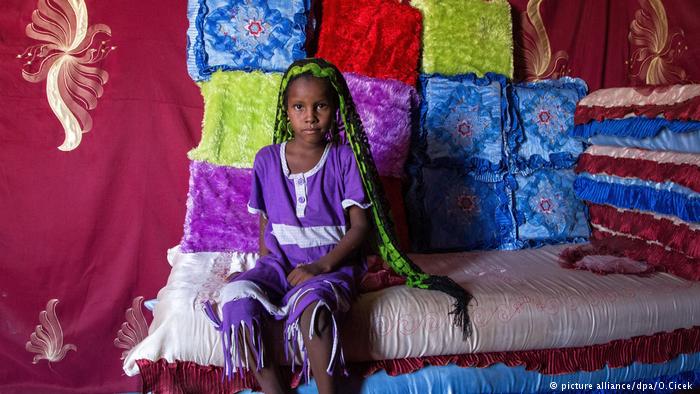Barred from bathing and banished from home – period taboos around the world

In this photograph taken on February 3, 2017, Nepalese woman Pabitra Giri prepares to sleep in a Chhaupadi hut during her menstruation period in Surkhet District, some 520km west of Kathmandu.
The practice of banning women from the home when they are menstruating is linked to Hinduism and considers women untouchable at this time. They are banished from the home — barred from touching food, religious icons, cattle and men — and forced into a monthly exile sleeping in basic huts.
In many countries women are excluded from religious rituals and banished from their homes while they are on their periods.
Violent protests and strikes have rocked southern India after three women defied a centuries-old ban on entering a Hindu temple.
The hilltop temple is one of a handful in India that bar women of menstruating age – a practice that stems from the belief that women and girls are impure during their periods.
Menstruation taboos can be found all over the world – here are 10 of the most common.
Don’t pray
Women face being excluded from religious rituals and places during their periods in many parts of Asia, including mainly Hindu India and Buddhist communities in China and Japan.
Muslim women across the world are restricted from entering mosques or taking part in prayers during their periods.
Last January, Ghanaian schoolgirls were banned from crossing a river while on the periods, sparking criticism from activists. The ban was purportedly issued by a local river god.
Banished from home
In parts of Indonesia, India, Nepal and in some Nigerian tribes, girls and women are banished from the family home during their periods and often have to sleep in animal sheds.
Several have died in rural Nepal in recent years, usually of smoke inhalation after lighting fires to try to keep warm.
Don’t cook
Superstitions about the effect of menstruating girls and women on food persist in many parts of the world.
In India there is a belief that pickles touched by menstruating women will rot, while other cultures believe they can curdle butter, cream and mayonnaise.
Some believe bread dough handled by a woman during her period will not rise.
Don’t bathe
From India and Israel to several European and South American countries, women are told not to bathe or wash their hair during their periods in the belief that it could make them infertile or sick.
Even a dip in the pool or beach is to be avoided.
Don’t groom
Women are often advised not to cut, dye or perm their hair while menstruating. Some are advised against waxing for fear that their hair will grow faster, while others are told not to cut or paint their nails.
In Venezuela, it is reportedly believed that if menstruating women groom their bikini lines, their skin gets darker.
Stay away from plants
Some cultures ban menstruating women from touching plants, flowers or walking through crop fields in the belief they may cause them to wilt and die.
In India, women are sometimes told not to touch or water plants that are considered holy, like basil, during their periods.
Stay away from animals
Some cultures believe contact with menstruating women will make animals such as dogs and horses agitated.
In parts of India and Nepal, girls on their periods cannot touch cows because they are considered holy in Hinduism.
In some tribes in Uganda, women are banned from drinking cow’s milk owing to the belief that they could contaminate the whole herd.
Stay away from men
Menstruating women are restricted from going out and having any contact with boys and men in many conservative pockets of the world.
Orthodox Judaism forbids women from having contact with men during their periods at the end of which they have to take a ritual bath called a “mikvah”.
In parts of Poland and Rwanda, it is believed that having sex with a woman during their period can kill you.
Don’t exercise
Exercising or playing sports can have damaging effects on a woman’s period and her body, according to some beliefs.
In 2016, China’s swimming star Fu Yuanhui revealed she was on her period when she competed at the Rio Olympics, breaking a major taboo and sparking nationwide discussion.
Don’t use tampons
Girls are often warned against using a tampon or menstrual cup over fears they could break their hymen – a source of shame in some socially conservative countries.
Author: Annie Banerji, Thomson Reuters Foundation
Sources: UNICEF, UNFPA, WaterAid, ActionAid, World Bank, World Economic Forum, rubycup.com, Cotton Incorporated, menstrupedia.com, National Center for Biotechnology Information, Plan International, Society for Menstrual Cycle Research, WASH United, National Rural Health Mission of India, India Fellow, Global Citizen, Niine Movement






